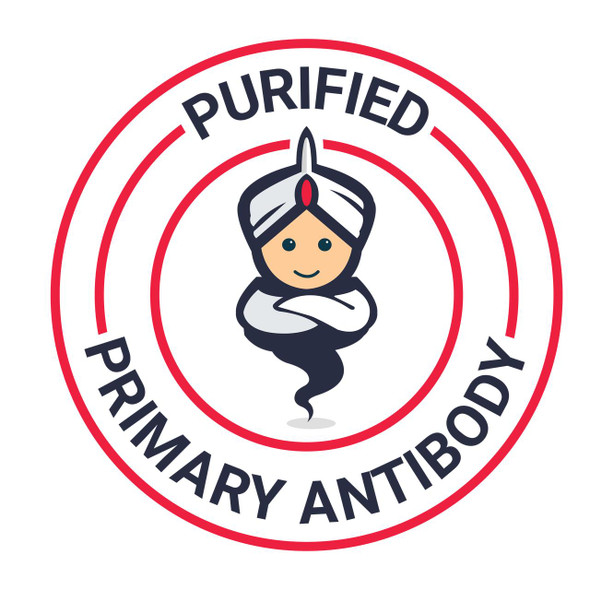Description
system_update_altDatasheet
| Product Name: | anti--Mouse CD40L/CD154 monoclonal antibody (FITC) |
| Product Code: | AGIM0516 |
| Size: | 100 µL |
| Reactivity: | Mouse |
| Clone: | MR-1 |
| Applications: | Flow Cytometry |
| Conjugate: | FITC |
| Isotype: | IgG2b |
| Host Species: | Rat |
| Storage: | Store at 4°C. Avoid prolonged exposure to light. |
| Uniprot: | Q95460 |
| Background: | CD154 / CD40L (CD40 ligand) is a member of the tumor necrosis factor family, and is expressed primarily on activated CD4+ lymphocytes, but also on mast cells, basophils, eosinophils and human dendritic cells. Its counter-receptor CD40 is expressed on antigen presenting cells, including dendritic cells, macrophages, and B cells, and also on fibroblasts. Triggering of CD40 by CD40L causes maturation of dendritic cells and upregulation of antigen presentation in functions of the MHC and costimulatory molecules. CD40L also functions as a direct stimulating factor for T cells. CD40L plays also roles e.g. in antibody class switching and modulation of apoptosis in the germinal center. |
| UniProt Protein Function: | MR1: Has antigen presentation function. Involved in the development and expansion of a small population of T-cells expressing an invariant T-cell receptor alpha chain called mucosal-associated invariant T-cells (MAIT). MAIT cells are preferentially located in the gut lamina propria and therefore may be involved in monitoring commensal flora or serve as a distress signal. Expression and MAIT cell recognition seem to be ligand- dependent. Belongs to the MHC class I family. 5 isoforms of the human protein are produced by alternative splicing. |
| UniProt Protein Details: | Protein type:Membrane protein, integral Chromosomal Location of Human Ortholog: 1q25.3 Cellular Component: endoplasmic reticulum; plasma membrane Molecular Function:antigen binding; MHC class I receptor activity; protein binding Biological Process: antigen processing and presentation; immune response |
| NCBI Summary: | MAIT (mucosal-associated invariant T-cells) lymphocytes represent a small population of T-cells primarily found in the gut. The protein encoded by this gene is an antigen-presenting molecule that presents metabolites of microbial vitamin B to MAITs. This presentation may activate the MAITs to regulate the amounts of specific types of bacteria in the gut. Several transcript variants encoding different isoforms have been found for this gene, and a pseudogene of it has been detected about 36 kbp upstream on the same chromosome. [provided by RefSeq, Jul 2015] |
| UniProt Code: | Q95460 |
| NCBI GenInfo Identifier: | 74751679 |
| NCBI Gene ID: | 3140 |
| NCBI Accession: | Q95460.1 |
| UniProt Secondary Accession: | Q95460,O97985, O97986, Q53GM1, Q95HB8, Q9MY23, Q9NPL2 Q9TQB3, Q9TQB9, Q9TQK3, A8K2V9, B4E3B1, |
| UniProt Related Accession: | Q95460 |
| Molecular Weight: | 25,190 Da |
| NCBI Full Name: | Major histocompatibility complex class I-related gene protein |
| NCBI Synonym Full Names: | major histocompatibility complex, class I-related |
| NCBI Official Symbol: | MR1 |
| NCBI Official Synonym Symbols: | HLALS |
| NCBI Protein Information: | major histocompatibility complex class I-related gene protein |
| UniProt Protein Name: | Major histocompatibility complex class I-related gene protein |
| UniProt Synonym Protein Names: | Class I histocompatibility antigen-like protein |
| Protein Family: | Major histocompatibility complex class I-related gene protein |
| UniProt Gene Name: | MR1 |
| UniProt Entry Name: | HMR1_HUMAN |



![Purified Anti-Human/Monkey CD154/CD40L Antibody [5C8] (AGEL1604) Purified Anti-Human/Monkey CD154/CD40L Antibody [5C8] (AGEL1604)](https://cdn11.bigcommerce.com/s-h68l9z2lnx/images/stencil/590x590/products/22135/607153/anti-humanmonkey-cd154cd40l-antibody-5c8-agel1604__62950.1707500240.jpg?c=2)



